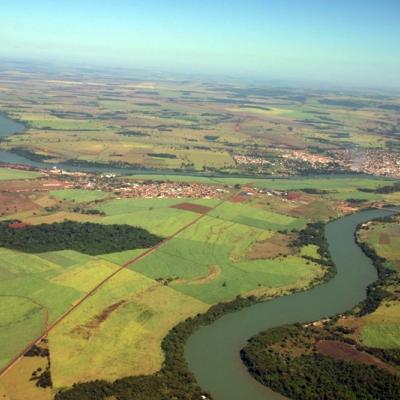First-ever Global Assessment On Rainfall Variability And Global Migration
Worsening Drought Predicted To Affect 700 Million People
16 Jan 2022 by The Water Diplomat
WASHINGTON DC, United States

As climate change accelerates a global water crisis, rainfall variability is expected to be one of the contributing forces in future migration, according to a new World Bank report. It reveals that it is a lack of water, rather than too much, that has a greater impact on migration.
The report, Ebb and Flow, examines the link between water and migration, and the implications for economic development. Researchers say that water deficits were linked to ten percent of the increase in total migration within countries between 1970 and 2000. By the end of this century, worsening droughts are projected to affect about 700 million people. Seventeen countries that are home to 25 percent of the world population already face high levels of water stress.
Climate shocks have a disproportionate impact on the developing world, with more than 85 percent of people affected living in low- or middle-income countries. Yet, say the report authors, it is often the poor who cannot afford to leave. The report finds that residents of poor countries are four times less likely to move than residents of wealthier countries.
“As the world’s most water-scarce region, access to water is a daily struggle for millions of people in the MENA region, particularly the most vulnerable. The region also faces the greatest expected economic losses from climate-related water scarcity – estimated at between six percent and 14 percent by 2050,” said Ferid Belhaj, World Bank Vice President for the Middle East and North Africa.
Experts anticipate that global warming will make “day zero” events (when taps run dry) more common in the world’s cities, which are now home to 55 percent of the human population. Alongside recent acute water shortages in Cape Town, Chennai, and São Paolo, dozens of smaller cities face similar fates.
The report represents the first-ever global assessment of the impact of water on migration and based on analysis of the largest data set on internal migration ever assembled, covering nearly half a billion people from 189 population censuses in 64 countries from 1960 to 2015. It assesses how rainfall shocks are related to migration relative to other variables such as age, gender and education.
“Ensuring that water is part of the broader humanitarian-development policy discussion and plans is vital for stabilizing economies, rebuilding livelihoods, and forging a green, resilient, and inclusive future for all,” Belhaj adds.
Related Topics
21 Nov 2021 DAMASCUA, Syria
Climate change-linked extreme drought, continued armed conflict in the region, and up-stream blockage aggravate water shortages in rural Syria.
25 Jul 2021 Buenos Aires, Argentina
Cargo ships have been unable to transport goods due to the shallowness of the basin, which has also sparked concerns amongst local communities who rely on the Parana River for drin...

8 Jun 2021 Sao Paulo, Brazil
Government to reduce number of cargo ships permitted on the Parana River basin, part of Brazil’s fourth- largest waterway for cargo transport. Restrictions could impact Brazil’s ag...
